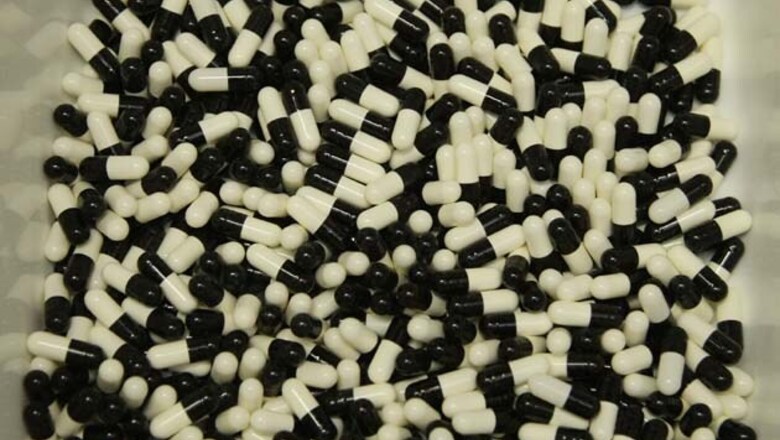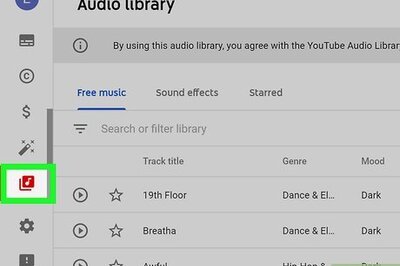
views
Silver Spring Maryland: The first new weight-loss pill in a decade moved closer to US approval on Tuesday, when a panel of expert advisers backed Orexigen Therapeutics's Contrave despite heart risk concerns.
It was the third new weight-loss drug to come before U.S. regulators this year, the Food and Drug Administration having rejected two rival medicines in October.
Orexigen's stock more than doubled to USD 12.20 from Monday's close of USD 4.76 when it reopened in after-hours trade Tuesday. Shares of competitors Vivus Inc and Arena Pharmaceuticals Inc also rose, as investors bet Contrave's approval could revive their fortunes.
The advisers were not overly impressed with the modest weight loss seen in patients taking Contrave, but some said rejection could quash development of such drugs at a time when two out of three Americans are overweight or obese.
"My concern is, we will potentially kill development of these medications, and it is the most serious disease that the United States is facing," said panel chairman Abraham Thomas, head of endocrinology at Henry Ford Hospital in Detroit.
The outside experts voted 13-7 to back approval of Contrave but urged the FDA to require the company to conduct a larger clinical study to look at potential heart risks over time.
Contrave combines the alcohol and drug addiction drug naltrexone with the antidepressant bupropion in an attempt to boost metabolism while curbing appetite and cravings.
Study data showed a slight increase blood pressure and pulse rates for Contrave patients versus those given a placebo.
The pill met FDA effectiveness guidelines, in that at least 35 percent of patients studied lost at least 5 percent of their weight.
The FDA usually follows panel recommendations. A final ruling is due by January 31 but analysts said there could be a delay while post-marketing study details are agreed.
Good news for rivals
Analysts said the panel vote was particularly good news for Vivus, the FDA having already asked for more data on heart risks of its Qnexa.
"This is great news for Vivus," said Ira Loss, who follows the FDA for Washington Analysis Corp. "The panel recommended a post-approval study and that tells me that will be the case for Vivus as well."
Shares of Vivus rose 12 percent in extended trading to USD 8.75 and shares of Arena, whose drug was rejected over cancers seen in animal studies, rose 10 percent.
The shares of all three companies have been volatile in recent months as their fortunes have shifted and investors swapped allegiance with each advisory meeting and FDA action.
The fate of Contrave is key to California-based Orexigen, which focuses solely on obesity drugs and has no products on the market so far.
According to data from BioMedTracker, Contrave sales could reach USD 1.2 billion by 2018. That figure would make it the top player in a U.S. weight-loss drug market that sees just USD 382 million in sales annually, according to IMS Health.
Drugmakers seeking a pill to help people slim down have been thwarted for decades by serious side effects, and few options remain on the US market.
Xenical from Roche Holding AG, approved in 1999, remains an approved prescription weight-loss drug.
GlaxoSmithKline markets a lower-dose, over-the-counter version called Alli. Both can cause serious liver problems, uncontrolled bowel movements and gas.
Abbott Laboratories' Meridia, on the market since 1997, was removed in October over concerns about heart risks.
Some panelists who rejected the drug said they feared Contrave could echo Meridia's history, especially if long-term data is delayed.
"We need to make sure we get it right the first time," said panelist Sanjay Kaul, a cardiologist at Cedars Sinai Medical Center in Los Angeles who voted against approval.
The FDA and Orexigen are already in talks about another trial to look more closely at whether the heart changes seen signal potential for greater cardiovascular side effects.
Orexigen CEO Mike Narachi told reporters after the meeting that the company was not surprised by the issues raised on Tuesday and would hold a conference call Wednesday afternoon to give more comments.
Orexigen, which has partnered with Takeda Pharmaceutical Co Ltd, had said the 25-year history of both ingredients in Contrave is an advantage because many safety issues are already known.
But many panelists had reservations about Contrave, including some who voted for approval."I feel the sponsor met the requirements of the FDA on the other hand, I feel this is a very flawed product," said Michael Rogawski, a neurologist at the University of California Davis who said he would only use it on certain patients.

















Comments
0 comment